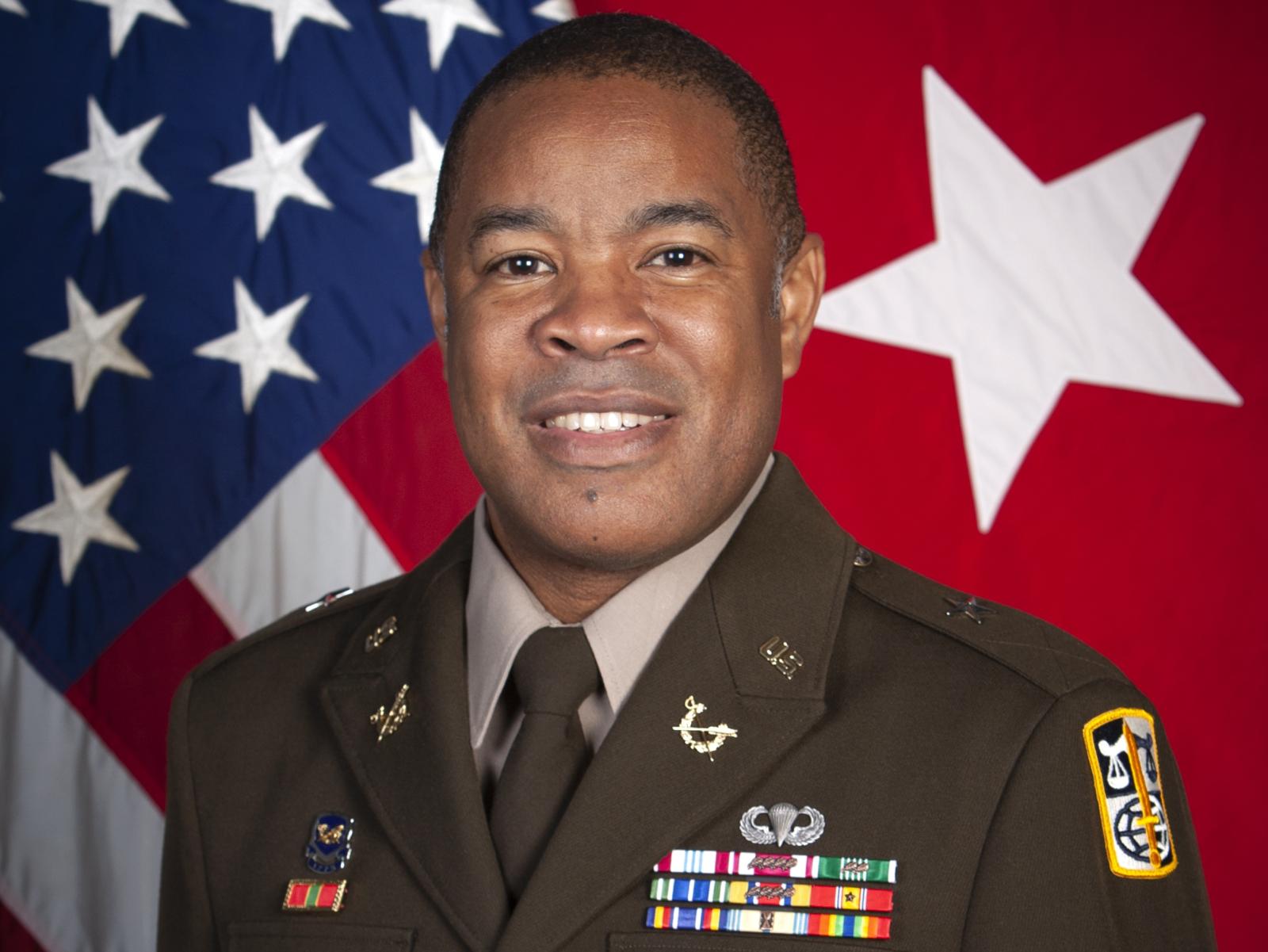Becoming an Army brigadier general takes about 20-25 years and “a lot of hard work at each job that you are assigned,” says Ronald D. Sullivan (BBA ’93). He would know: he earned the rank in 2021. He is the first Howard University ROTC alumnus and third Black army soldier to hold that specific United States Army Judge Advocate General’s (JAG) role as a General Officer.
“Your superiors begin not only assessing performance, but [at] every evaluation, they also assess your potential for success at the next higher grade,” he says.
Since graduating from Howard University’s School of Business, Sullivan carved out a long-standing career with the army as a lawyer and now as chief judge of the U.S. Army Court of Criminal Appeals. In addition to hearing cases, he also engages in community outreach activities, particularly for recruiting more Black soldiers for the Army and the JAGC Corps.
Being a Black officer “takes a commitment to understand people across cultures, and also understand and be true to yourself,” Sullivan says, noting that he has often been the only African American in a room of decision-makers. While this is not unusual, Sullivan rises to the occasion and comfortably advises the leaders who rely on his legal advice.
Mentorship means I can come alongside you and share my experience and wisdom. You can tap into that. You don’t have to do it my way, but it might help.”
Sullivan earned his law degree from the University of Kansas School of Law and worked on many high-profile cases in the Army JAG. He served as prosecutor in the initial installment of the United States v. David Hicks case, an Australian Taliban war criminal who was held at Guantanamo Bay. Sullivan has also tried over 80 criminal cases and almost a dozen civil cases in his career. Most recently, he served as master of ceremonies and host of an event where the secretary of the army overturned convictions of 110 Black soldiers who were sentenced (19 executed) under a trial overshadowed by Jim Crow laws in Texas in 1917, and later ruled unfair by the Army Board for Correction of Military Records. “To witness the announcement that the 110 buffalo soldiers exonerated was a goosebump moment,” he recalls.
Sullivan’s father and uncle, who had military ties, impressed the concept of duty, honor, and integrity upon him from a young age. During his time in the HU ROTC, Sullivan was taught a foundation of character that still aids him to this day through the officers and older cadets he encountered during his education. They made such an impression on a young Sullivan that he strives to replicate this guidance for those who come after him.
While still having his own mentors, Sullivan offers his experience and guidance to others. “Mentorship means I can come alongside you and share my experience and wisdom. You can tap into that. You don’t have to do it my way, but it might help.”
He has followed much advice through the years, but one in particular. A friend he’d known since they were five had also joined the army and was not confident in his assigned leader. “He encouraged me to continue my path to be an officer,” he says, because his friend told him that “we need more people we can trust and follow.”
“I’ve kept that written with the important notes that I keep on my heart, [to remind me of] my duty and my responsibility,” Sullivan says.
Article ID: 1931





